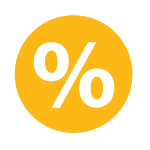
Buying a home is one of the biggest financial decisions you’ll ever make, and securing the right mortgage is a crucial part of the process. While it’s easy to get caught up in the excitement, asking your mortgage lender the right questions can save you a lot of stress and money in the long run. Before signing on the dotted line, here are 10 essential questions to ask your mortgage lender.
1. What Type of Loan is Best for Me?
Mortgage loans come in many shapes and sizes—fixed-rate, adjustable-rate, FHA, VA, and more. Each loan type has different benefits depending on your financial situation. Ask your lender to explain the options and recommend the best fit based on your income, credit score, and how long you plan to stay in the home.
2. What is the Interest Rate and Annual Percentage Rate (APR)?
Understanding your interest rate is key to knowing how much you’ll pay over the life of the loan. The APR includes the interest rate plus other lender fees, so it gives you a fuller picture of the loan’s true cost. Make sure to clarify both rates and ask if they’re fixed or adjustable.
3. How Much is the Down Payment?
While a 20% down payment is common, some loan programs offer lower options. Ask your lender what the required down payment is for your loan, and if private mortgage insurance (PMI) is necessary for a smaller down payment. PMI can add extra costs to your monthly payments, so knowing this upfront is essential.
4. What Are the Closing Costs?
Closing costs can range from 2% to 5% of the loan amount and include fees like loan origination, appraisal, title insurance, and more. Get a detailed breakdown of these costs from your lender and ask if there’s any flexibility to negotiate or if the seller can cover some of the costs.
5. Are There Prepayment Penalties?
Some loans charge penalties if you pay off your mortgage early. These penalties can add unexpected costs if you plan to refinance or pay off your loan ahead of schedule. Ask your lender if there are any prepayment penalties associated with your loan.
6. What is the Loan Term?
The loan term dictates how long you’ll be paying your mortgage. A 30-year term will have lower monthly payments but higher interest over time, while a 15-year term means higher payments but less interest overall. Make sure the term aligns with your financial goals.
7. How Will My Property Taxes and Insurance Be Handled?
Interest rates can fluctuate between the time you apply for a loan and when you close on the home. A rate lock ensures your interest rate stays the same during this period. Ask how long the rate lock lasts, and if you’ll need to pay a fee to extend it if your closing is delayed.
8. How Long is the Rate Lock, and Can it Be Extended?
Interest rates can fluctuate between the time you apply for a loan and when you close on the home. A rate lock ensures your interest rate stays the same during this period. Ask how long the rate lock lasts, and if you’ll need to pay a fee to extend it if your closing is delayed.
9. What Happens If My Loan Application is Denied?
While no one likes to think about loan denial, it’s important to understand the reasons behind it and what your options are. Ask your lender how you can improve your application if needed, whether that means working on your credit score or increasing your down payment.
10. Can I Get a Loan Estimate and a Closing Disclosure?
A Loan Estimate provides a snapshot of your loan terms, including estimated interest rate, monthly payment, and total closing costs. The Closing Disclosure provides final details of your mortgage terms. Make sure to ask for both documents so you can review the details before closing day.
Conclusion
Securing a mortgage is a big commitment, and asking these questions ensures that you fully understand the loan terms and are comfortable with the financial implications. Don’t be afraid to ask for clarification or more details—your lender should be transparent and responsive to your needs. The more informed you are, the smoother the home-buying process will be, helping you make the best decision before signing the dotted line.
For more financial tips and resources, visit our Financial Education Center.


